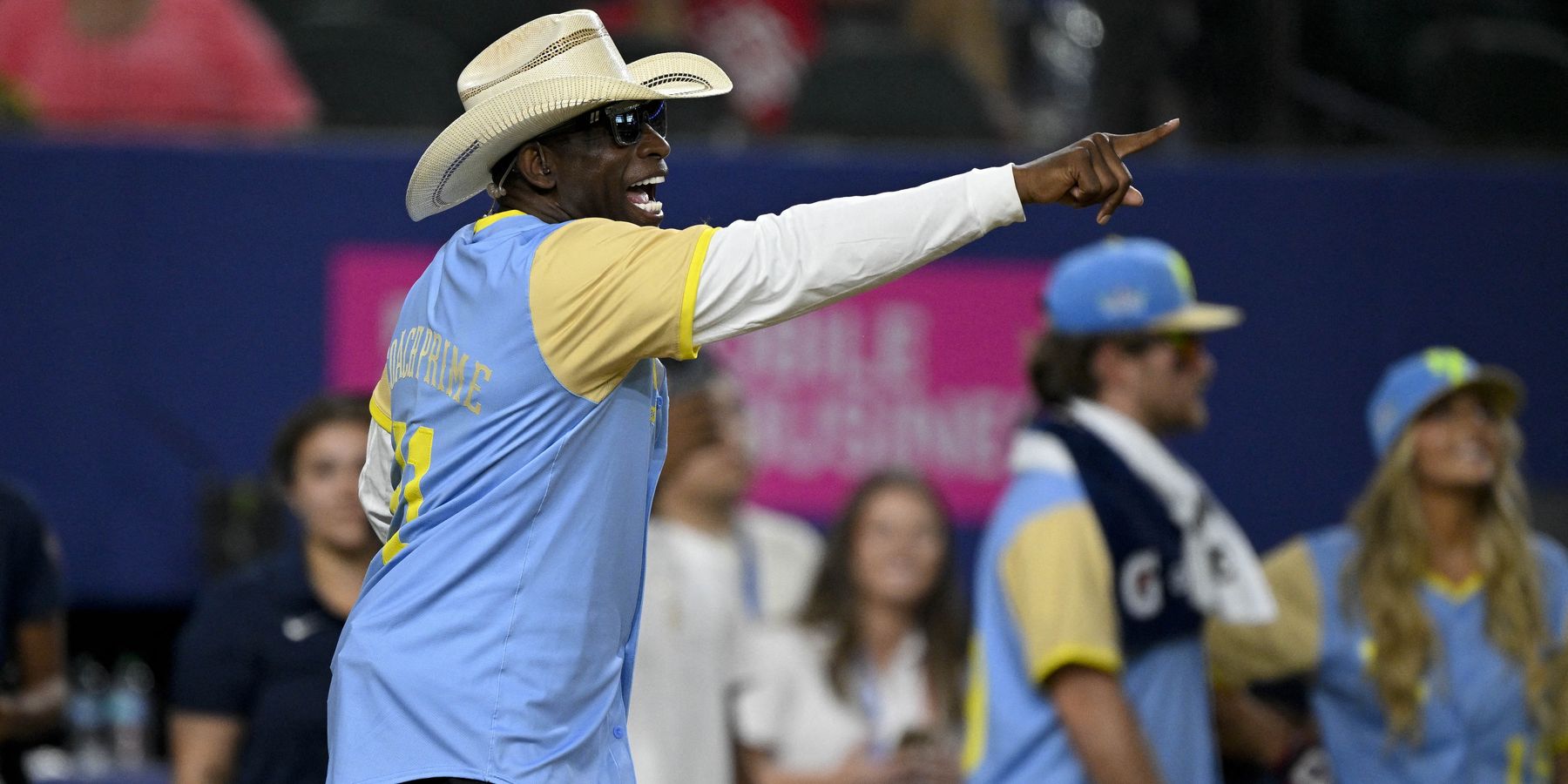Saudi Arabia has become the world’s leader in sportswashing — a practice in which authoritarian countries conceal poor human rights records or other unsavory characteristics through the funding and general association with sports.
In short, sportswashing allows countries to launder their reputation on the world stage.
Dropping their immense Public Investment Fund (PIF) capita — valued at nearly $1 trillion — into various sporting leagues, the Saudis have developed an unrivaled sportwashing portfolio, including investments in golf, soccer, mixed martial arts (MMA), and boxing, just to name a few. Big name athletes have also been reeled in by the Saudi largesse, as perhaps best illustrated by top soccer players signing massive contracts to play in the Saudi Pro League.
So where to next for Saudi sportswashing? NCAA Football. As reported by Sports Illustrated, a staffer working for Deion Sanders, the razzle dazzle former star defensive back turned University of Colorado head football coach, was in talks this summer with the Saudis, attempting to solicit PIF funds for the University of Colorado’s Name, Image, and Likeness (NIL) program. A revolutionary change to college football in its own right, NIL was implemented by the NCAA in 2021 to allow athletes to profit off their, as stated, name image and likeness, with examples including endorsement deals, selling apparel, and signing autographs.
A potential inflection point towards the complete professionalization of college sports in the future, NIL has become a lucrative endeavor in its own right. Donor-based groups, known as NIL “collectives,” now exist for effectively all Division I universities, a means by which individuals and corporations crowdsource funds for each university under the broad banner of “Name, Image, and Likeness.” In turn, players sign contracts with this collective, providing a NCAA -sanctioned avenue for college athletes to profit during their time in school.
Such collectives have already become a source of controversy, with critics charging it opens up the opportunity for major recruiting violations under the guise of official NCAA policy, allowing highly-ranked recruits to sign lucrative contracts under rather nebulous circumstances. While collectives are explicitly barred from recruiting, the whole process remains rather opaque.
While Sanders and the University of Colorado have not confirmed whether they knew about the staffer's trip to Saudi Arabia, adding Saudi PIF funding to the school’s NIL Collective would be a means of leveling the playing field with the college football “blue bloods” such as the University of Alabama, Ohio State University, and the University of Michigan.
But, the prospect of Saudi investment in NIL collectives is rather troublesome. While parity in college football is an admirable objective, should it be achieved by crowd sourcing from authoritarian foreign regimes? It is one thing for alumni to support the material well being of their university’s athletes, but quite another for NCAA collectives to become the next frontier for foreign influence operations.
The pitch to secure Saudi PIF money for the University of Colorado’s football program could also raise questions about whether such an investment would trigger the U.S.’s preeminent law for regulating foreign influence in the U.S.: the Foreign Agents Registration Act (FARA). Six firms, including lobbying and public relations firms, representing the Saudi PIF are already registered under FARA, according to Department of Justice records.
The FARA statute is notoriously broad and vague, thus it’s not immediately clear whether or not a sizeable investment by the Saudi PIF in a college football program’s NIL collective would require FARA registration. But, if FARA registration was required, Colorado athletes accepting Saudi NIL money might have to brandish another logo next to the Colorado Buffalo on their jerseys: the Saudi flag.
- Saudi Arabia's bid for control of the PGA isn't just about golf ›
- Saudi sportswashing stonewalls the Senate ›
















